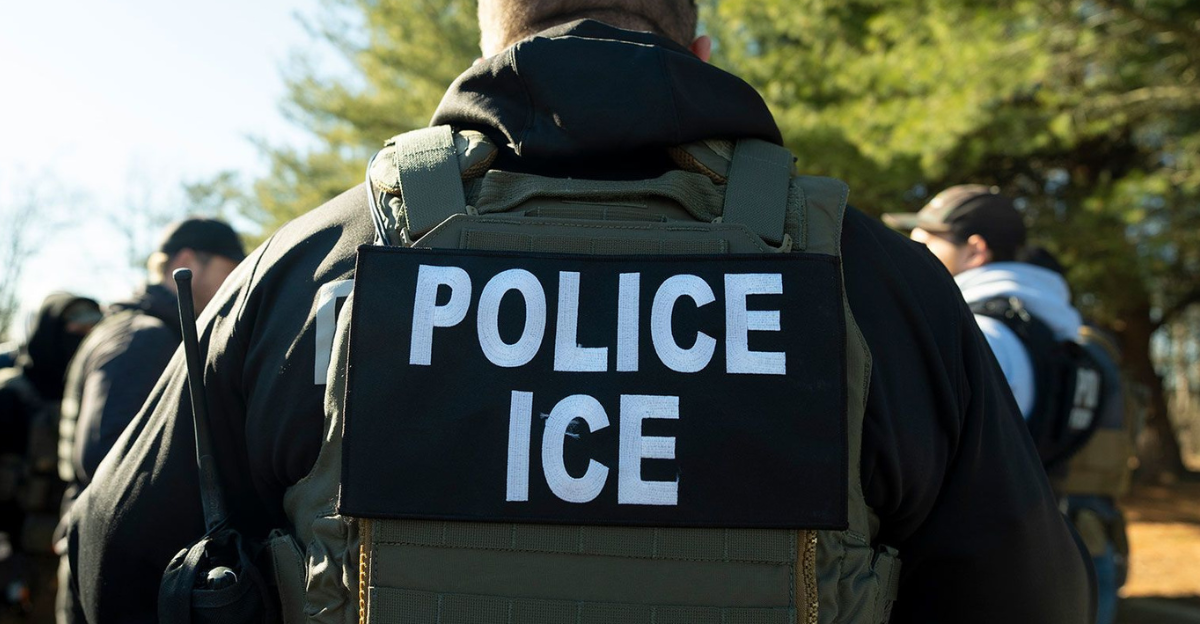Questions about the death of Marie Blaise at a South Florida ICE detention center have lingered since she collapsed in April.
A woman who died of a heart attack in a federal immigration detention facility in South Florida told her son over the phone on the day she died that staff refused to let her see a physician for chest pains, her son told a county investigator.
Marie Ange Blaise, a 44-year-old Haitian national, died on April 25 at the Broward Transitional Center (BTC)—a privately run facility in Pompano Beach, Florida, that contracts with Immigration and Customs Enforcement (ICE). A medical examiner’s report obtained by Reason through a public records request concluded that she died of natural causes from cardiovascular disease.
An investigator for the Broward County Medical Examiner’s Office interviewed Blaise’s son, Kervens Blaise, who said his mother reported being denied medical care.
“I asked Kervens when he last spoke with his mother and said on Friday, 4/25/25 at 2:54 pm (California time),” the investigator wrote in the report. “At that time, did his mother complained of any health issues and he states she complained of having chest pains and abdominal cramps, and when she asked the detention staff to see a physician, they refused her. Kervens states his mother has been experiencing the chest pains for about a month now.”
Blaise also reportedly told several other detainees that she wasn’t feeling well that day.
Blaise was first detained by ICE on February 14 and was transferred to several different ICE detention centers before being sent to BTC in early April.
An official ICE narrative of Blaise’s medical history during her detention states that she had a history of high blood pressure and kidney disease, and that she repeatedly refused to take prescribed medication. According to the ICE report, Blaise saw medical providers three times between her arrival at BTC on April 5 and her death on April 25.
However, BTC detainees who witnessed Blaise collapse said there was also a slow staff response.
In a report on inhumane conditions at South Florida ICE detention centers recently published by several human rights and legal aid groups, a former BTC detainee identified only as “Rosa” told researchers that she heard a scream from a nearby cell and saw Blaise kneeling on the ground.
“We started yelling for help, but the guards ignored us,” Rosa told the report authors. “Finally, one officer approached slowly, looked at her without intervening, and then walked away. After that, it took eight minutes for the medical provider to arrive, and then another 15 or 20 before the rescue team came. By then, she was not moving.”
Lawyers and detainees have repeatedly alleged medical neglect by staff at ICE facilities in South Florida, including BTC, the Krome Detention Center, and the Federal Detention Center Miami.
Harpinder Chauhan, a British entrepreneur who was detained by ICE this spring and eventually deported, told the report’s researchers that BTC staff regularly refused to give him his insulin.
Chauhan eventually collapsed while standing in the dinner line at BTC, leading to him being hospitalized for three days. Chauhan’s son said that hospital and ICE staff would not give him any information on his father’s condition, and he eventually learned his father had been registered under a false name.
A former detainee, whose lawyer requested that he only be identified as “A.S.,” tells Reason he spent four days in an overcrowded holding cell with 50 to 60 other people at the Krome Detention Center.
“There was a dude, he passed out. He was crying for his medicine for like two or three days,” A.S. says. “They didn’t give him his medicine until he finally passed out, right before they were gonna put him on the plane.”
Another man detained at Krome told the report’s authors that the only way he could get guards to believe he was suffering from an excruciating hernia was to throw himself on the floor. Prison staff eventually wheeled him to the medical team, where the doctor on duty told him he “likely just had gas” and offered him “a Pepto-Bismol and two Tylenols.” The detainee refused to leave until the doctor eventually agreed to send him to a hospital, where he received a CAT scan that found he had a strangulated abdominal wall hernia. “The doctor [at the hospital] told me that if I had not come in then, my intestines would have likely ruptured,” the man said.
Blaise’s death led to condemnations and calls for investigations from Florida Democrats, such as Rep. Frederica Wilson (D–Miami Gardens).
“Marie is just an example of what is going to continue to happen,” Wilson said after touring BTC in May. “This is something we’re going to continue to see. It’s going to get more crowded. It’s going to continue to have more deaths. It’s going to continue to have more children without their parents.”


